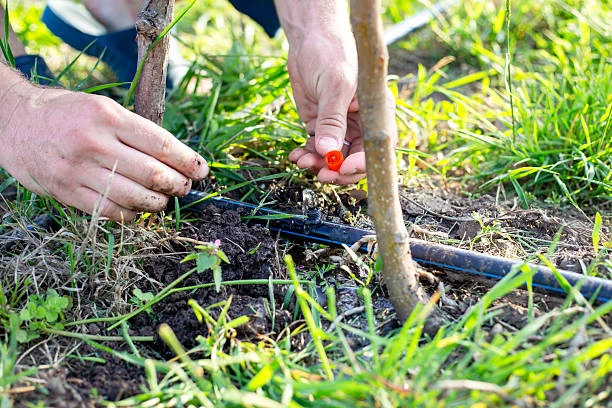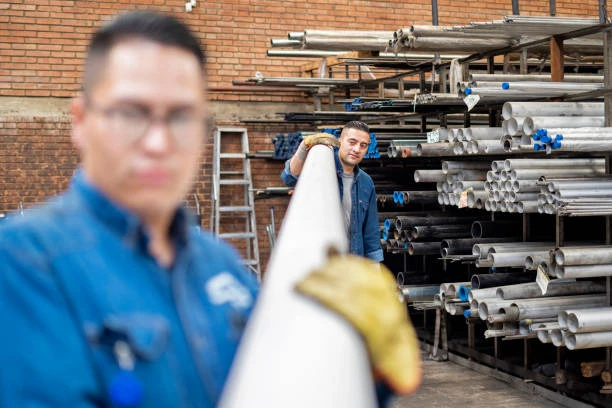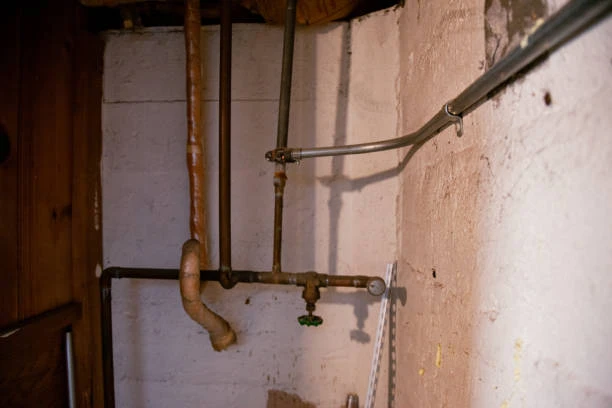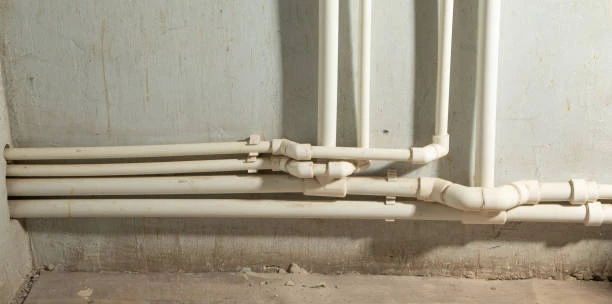1. Introduction
4 inch HDPE (High Density Polyethylene) pipes are widely recognized for their balance between capacity and flexibility. As a medium-diameter piping solution, they serve a variety of applications in water supply, drainage, irrigation, and industrial systems. Their durability, resistance to corrosion, and lightweight nature make them ideal for both underground and above-ground installations. This article explores the most common uses of 4 inch HDPE pipes, guiding readers through application sectors, selection advice, installation tips, and a comparison with other materials.
2. FAQ – Frequently Asked Questions
1. Where is 4 inch HDPE pipe commonly used?
It is often used in water distribution, agriculture irrigation, drainage systems, and cable protection.
2. Can I use 4 inch HDPE pipe for drinking water?
Yes, HDPE is a safe, non-toxic material suitable for potable water systems.
3. Is 4 inch HDPE pipe suitable for underground use?
Absolutely. Its flexibility and resistance to soil movement make it ideal for underground installations.
4. How does it compare to PVC pipe?
HDPE is more flexible and impact-resistant, while PVC offers greater rigidity but can crack under pressure.
5. What fittings are used with 4 inch HDPE pipe?
Fusion fittings, mechanical fittings, and flange systems are commonly used for reliable connections.
3. Definition and Features of 4 Inch HDPE Pipe
A 4 inch HDPE pipe refers to a pipe with an outer diameter of approximately 110 mm. It is made from high-density polyethylene, a thermoplastic polymer known for strength, ductility, and resistance to corrosion and abrasion. It is usually black or black with color-coded stripes for identification purposes.
Main Characteristics:
Flexibility: Allows for longer runs and curved installations without requiring many joints.
Chemical Resistance: Handles most acids, bases, and organic materials.
Impact Resistance: Withstands stress from shifting soil or physical impacts.
Low Friction: Smooth inner surface reduces fluid resistance, improving flow rates.
Leak-Free Joints: Heat-fusion or mechanical joints prevent leakage, even in pressurized systems.
4. Common Applications and Industry Usage
4 inch HDPE pipes play an important role in several key sectors:
a. Water Supply Systems
In municipal, residential, and commercial settings, these pipes serve as medium-sized water supply lines. They connect distribution mains to homes, buildings, and parks.
b. Agricultural Irrigation
Farmers use 4 inch HDPE pipes for main irrigation lines, whether in drip systems, overhead sprinklers, or furrow irrigation. Their UV-resistance and flexibility suit both buried and surface-level layouts.
c. Drainage and Stormwater Management
These pipes are frequently used in draining rainwater, sewage, and surface runoff. They are capable of withstanding large volumes of water, especially in sloped terrains and roadside systems.
d. Industrial Applications
Industries transport liquids, slurry, and chemicals through 4 inch HDPE piping, particularly in mining, food processing, and chemical plants. Its resistance to corrosion and ease of welding makes it reliable for harsh environments.
e. Electrical and Telecommunication Conduits
HDPE pipes serve as protective casings for fiber optic cables, electrical lines, and signal wires. The 4 inch size offers enough space for multiple cables while maintaining protective integrity.
5. Buying Guide: How to Choose the Right 4 Inch HDPE Pipe
Choosing the right pipe depends on the intended use, site conditions, and installation method. Here are some tips:
Application Type: Is it for water, gas, wastewater, or cables?
Pressure Rating: Check pressure requirements and choose a pipe with the right wall thickness.
Pipe Color Coding: Blue (water), yellow (gas), red (fire systems), orange (telecom), black (general use).
Raw Material Grade: PE100 offers better performance than PE80 due to higher pressure ratings.
Pipe Coils or Straight Lengths: Coils are easier for long, curved runs; straight pipes suit fixed layouts.
Certification: Choose pipes tested for hydraulic, thermal, and environmental performance.
6. Installation Considerations
Installing 4 inch HDPE pipe requires planning, the right tools, and attention to site conditions. Below are practical tips:
Trench Preparation: Dig a clean trench with soft bedding to avoid damaging the pipe.
Bending Radius: Do not exceed the allowable bend radius to prevent stress cracking.
Fusion Welding: Use butt or electrofusion welding for permanent, leak-proof joints.
Anchoring: In areas of thermal expansion, allow room for movement or secure the pipe with anchors.
Backfilling: Use clean fill material without sharp stones; compact carefully to avoid pipe deformation.
Testing: Conduct hydrostatic pressure tests before final commissioning to detect any flaws.
7. Comparison Table: 4 Inch HDPE Pipe vs Other Pipe Materials
| Feature | 4 Inch HDPE Pipe | 4 Inch PVC Pipe | 4 Inch Steel Pipe |
|---|---|---|---|
| Flexibility | High | Low | Very Low |
| Weight | Light | Moderate | Heavy |
| Corrosion Resistance | Excellent | Good | Poor |
| Installation Ease | Easy (fusion joints) | Moderate (solvent weld) | Difficult (threaded/welded) |
| Leak Potential | Very Low | Medium | High |
| Lifespan | 50–100 years | 30–50 years | 20–40 years |
| Suitable for Bending | Yes | No | No |
| Cost-Effectiveness | High over lifetime | Low upfront cost | High upfront & upkeep |
8. Conclusion
The 4 inch HDPE pipe offers a perfect balance between capacity, strength, and flexibility. Whether you’re designing an irrigation system, constructing a water line, or laying protective conduit, this pipe size meets a wide range of needs. Its ease of handling, resistance to harsh conditions, and long service life make it a preferred solution for engineers, contractors, and municipal planners.
If you’re looking for a dependable pipe that performs well across various sectors and conditions, the 4 inch HDPE pipe is a smart, long-term choice.
IFAN international standard
HDPE pipes are manufactured in accordance with multiple international standards to ensure quality, durability, and application safety. In the U.S., ASTM D3035 and ASTM D3350 define the dimensional and material requirements for HDPE pressure pipes. ISO 4427 and EN 12201 are widely accepted global and European standards for HDPE pipes in water and wastewater systems. DIN 8074/8075 specify German technical norms, while GB/T 13663 is the standard in China. AS/NZS 4130 applies in Australia and New Zealand, and JIS K6760 covers Japanese quality criteria. BS 6572 outlines standards for HDPE pipes in the UK, and CSA B137.1 regulates their use in Canada. These standards ensure that HDPE piping systems meet essential criteria for pressure resistance, chemical stability, and long-term performance in infrastructure and industrial applications.
Connect
IFAN is a reputable Chinese manufacturer with 30 years of expertise in plastic pipes, fittings, and valves. We specialize in copper fittings, brass valves, and plastic piping solutions that meet a wide range of plumbing needs.
If you want to learn more about our cost-effective valve products and comprehensive piping systems, please contact us. Our professional team will reply within 24 hours to assist with your requirements.
Contact Information:
- For more information,pls visit our webside https://waterpipefitting.com/
Pls Mailto: [email protected]
Whatsapp: +86 15088288323
Feel free to reach out anytime for questions about our products or technical advice.














Recent Comments